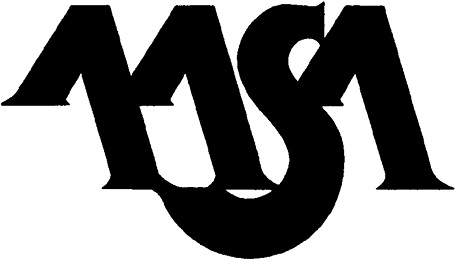
Published in partnership with the American Association of School Administrators
Published by Rowman & Littlefield Education
A division of Rowman & Littlefield Publishers, Inc.
A wholly owned subsidiary of The Rowman & Littlefield Publishing Group, Inc.
4501 Forbes Boulevard, Suite 200, Lanham, Maryland 20706
www.rowman.com
10 Thornbury Road, Plymouth PL6 7PP, United Kingdom
Copyright 2018 by Kristen J. Amundson
All rights reserved . No part of this book may be reproduced in any form or by any electronic or mechanical means, including information storage and retrieval systems, without written permission from the publisher, except by a reviewer who may quote passages in a review.
British Library Cataloguing in Publication Information Available
Library of Congress Cataloging-in-Publication Data
Names: Amundson, Kristen J., author.
Title: Getting your child ready for kindergarten / Kristen J. Amundson.
Description: Lanham : Rowman & Littlefield Publishing Group, Inc., [2018]
Identifiers: LCCN 2017054318 (print) | LCCN 2017059355 (ebook) | ISBN 9781475841169 (Electronic) | ISBN 9781475841152 (pamphlet : alk. paper)
Subjects: LCSH: Readiness for school. | Kindergarten.
Classification: LCC LB1132 (ebook) | LCC LB1132 .A49 2018 (print) | DDC 372.21dc23
LC record available at https://lccn.loc.gov/2017054318
 The paper used in this publication meets the minimum requirements of American National Standard for Information SciencesPermanence of Paper for Printed Library Materials, ANSI/NISO Z39.48-1992.
The paper used in this publication meets the minimum requirements of American National Standard for Information SciencesPermanence of Paper for Printed Library Materials, ANSI/NISO Z39.48-1992.
Printed in the United States of America
Introduction
Every year, more than 3.7 million children enter a kindergarten classroom for the first time (National Center for Education Statistics 2016). They are excited (and perhaps feeling a little nervous). Their parents are proud (and perhaps feeling a little sentimental).
Each child comes equipped with strengths, weaknesses, skills, and needs. And on a momentous day like the first day of kindergarten, parents may be asking, Is my child ready for school? Sadly, for many children, the answer may be no.
For years, research has shown that a huge learning gap already exists on the first day of kindergarten. Research shows that low-income children are about six months behind higher-income classmates in reading and seven months behind in math (Bassok, Latham, and Rorem 2016). When a young child enters kindergarten ready for school, there is an 82 percent chance that child will master basic skills by age eleven, compared with a 45 percent chance for children who are not school ready (Sawhill, Winship, and Grannis 2012).
But the good news is that the gap is narrowing. Compared to a decade earlier, families have more books at home, spend more time reading, visit museums and libraries more often, and use technology to advance learning (Reardon and Portilla 2016). That means children are more likely to arrive at school ready to learn. Thats important for everyonefor kindergarten children, their parents, and their teachers, but also for everyone in our nation.
This publication examines what we know about school readiness, discusses some of the reasons children are not ready, and outlines what schools, parents, and communities can do to help children enter school ready to learn.
The New Kindergarten Classroom
In the past, kindergarten was, quite literally, a childs garden. Children came to school for a half-day program. The purpose of kindergarten was to get children ready for first grade, where the real academic work started.
Now, kindergarten has changed. Today, in many states, children are expected to be reading at least some common words by the end of the year. Most kindergarten teachers80 percentthink children should be reading before they leave kindergarten. Children also are expected to know basic math skills, such as adding numbers with sums less than 10. In fact, when researchers at the University of Virginia looked at the expectations for kindergarten children, they summarized their findings in the title of their study: Is Kindergarten the New First Grade? (Bassok, Latham, and Rorek 2016).
Unfortunately, that means that children who start school behind their peers have a hard time catching up. In fact, studies show that at least half of the educational achievement gaps that show up in the higher grades are already present when children walk in the door on their first day of kindergarten (Lee and Burkham 2002). The larger the gap at school entry, the harder it is to close.
Thats why school readiness involves much more than just children. Families play a critical role in helping children get ready for school. Parents are still their childrens firstand most importantteachers. When they surround their children with their love, their support, and opportunities to explore and learn, they give their children the gift of school readiness.
Schools, too, have a role to play. Children come to school speaking a variety of languages, and with a wide range of experiences. Schools must be prepared to meet the needs of todays children and their families.
Finally, communities also play a critical role. They must support families, providing children with opportunities to learn, support for their families, and the services children need to be healthy and strong.
So its important for everyoneparents, schools, and the community at largeto think about what it takes to help children be better prepared for the first day of school. If we want all children to be successful in schooland to grow into healthy and productive adultsthen everyone has a stake in ensuring that our children are ready for school... and our schools are ready for our children.
What Do We Know About Readiness?
To Antonio, his first day of school seemed like a big adventure. When he walked into the classroom, he was happy to see some of the same children he played with in preschool, and others from his neighborhood. The classroom was decorated with brightly colored letters and numbers. He knew some of them alreadyhis mom had showed him that A was the first letter of his name.
There were things to climb on and move around, pictures of animals, and musical instruments to play. On the bookshelves, he saw some of the books his parents had read to him.
The time flew by as Antonio shared toys and games with other children and got to know his teacher. At the end of school, he was bubbling with news for his parents, who listened as he told them about his exciting first day.
Zoe was frightened when she entered the classroom for the first time. She had never seen so many other children in the same room. She wasnt sure how long she would have to stay, or why she was even there. The teacher was a stranger, and though she tried, Zoe couldnt seem to follow her directions very well. When the teacher read a story, she had trouble sitting still. She didnt know that people read books for fun.
By 9:30, Zoe was hungry and couldnt concentrate. She hadnt eaten any breakfast because her mother had to leave early to go to work.
She tried to be brave, but a little boy teased her because she couldnt catch a ball. She cried for a long time.
Although Antonio and Zoe are fictional, they represent a few of the feelings and experiences of children entering school for the first time. Either could have come from a poor or a wealthy background; a single-parent, divorced, blended, or nuclear family.
Next page
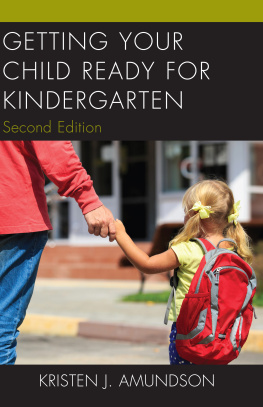

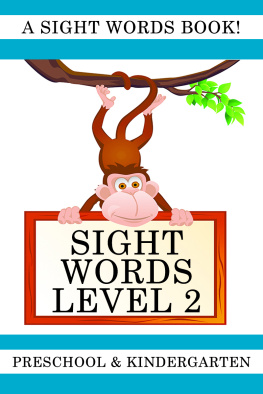
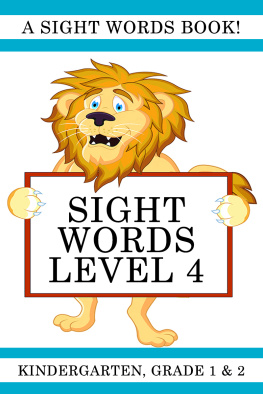
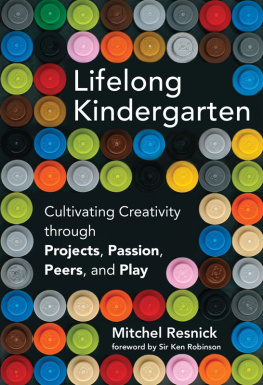
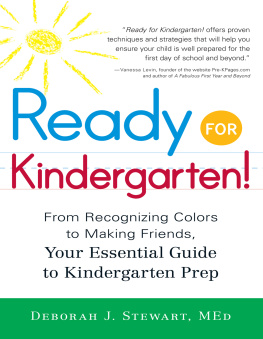
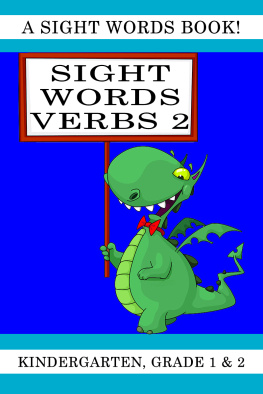


 The paper used in this publication meets the minimum requirements of American National Standard for Information SciencesPermanence of Paper for Printed Library Materials, ANSI/NISO Z39.48-1992.
The paper used in this publication meets the minimum requirements of American National Standard for Information SciencesPermanence of Paper for Printed Library Materials, ANSI/NISO Z39.48-1992.